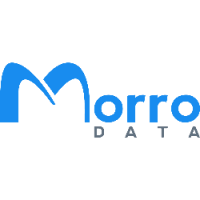How to Avoid the Pain of Syncing Files Over VPN
How to Avoid the Pain of Syncing Files Over VPN
Common VPN Issues
If your business has multiple offices or remote locations, you will need a file storage solution that allows employees to work on the same file or have access to common company files. That means files must either be centralized on a single file server or appear to be centralized by synchronizing them among multiple sites. The legacy methods for providing this solution involve using a virtual private network (VPN) – either to allow users to securely connect to the company network to access the file server directly or to mimic a centralized file server by syncing data across multiple storage servers. The latter can be accomplished by either using replication systems provided by a storage vendor or, if you are a Microsoft house, using Distributed File System Replication (DFSR).
IT managers deploying either method simply deal with the fact that they are slow and unreliable, which impacts the performance of the systems and puts the data at risk. Both problems cause a constant threshold of pain and anxiety for IT staff, as well as end-users. But in this day and age, with modern-day technology advances, should you really have to tolerate something that only ‘kind of’ works? Morro Data does not think so.
Consider the following issues:
1. Speed
A VPN creates overhead when transferring data packets slowing them down. Sharing files requires moving data via numerous requests and acknowledgments. Syncing files requires replication software using a hub-and-spoke model, so that every time a file is modified, it must first travel to the main file server in HQ before it can be distributed to each branch location. This makes it harder for users to work with the current version of files. It also significantly reduces the performance of the main file server, because it must now manage exponentially more traffic.
2. Reliability
VPN connections are not stable. If a connection is interrupted or lost in the middle of the file transmission, users must begin the process all over again. In the replication model, losing connection to the master site can lead to lost productivity, corrupted files, and file conflicts caused by users not working on the current version of a file. Companies with international locations deal with blocked VPN tunnels, rendering them incapable of sharing files at all. Even when set up perfectly by skilled IT managers, syncing files over VPN connections can be less than fluid. Issues with misapplied policies, inability to access shared drives, and even completely failed syncs are common occurrences.
3. Cost
Equipment must be maintained and upgraded continuously to meet the needs of a growing business, which can quickly make the cost of the IPsec VPN tunnel exorbitant. Furthermore, scaling those connections requires additional tunnels and equipment, further driving up those costs.
Alternatives to VPN – VPN Replacement
SD-WAN
SD-WAN stands for Software-defined Wide Area Network. SD-WAN is a virtual WAN architecture that simplifies IT infrastructure with a centralized, reliable, and secure network. However, the setup and deployment are complex, so companies may need to find experts to join your project.
Cloud NAS
Morro Data CloudNAS solves all those issues by centralizing your storage in the cloud without the need for a VPN. CloudNAS delivers:
- Speed. Using Cache & Sync technology, users copy files via a local NAS interface that is up to 100 times faster than legacy VPN file sharing, operating at LAN speeds. Syncing only the metadata means that all files are immediately visible and available to every location.
- File Sharing. CloudNAS uses a Global File System and Morro Sync Engine to provide a single namespace for accessing your files. All data is saved directly to the cloud, and all files are visible and available to every location as if users are working on a single, centralized file server.
- Reliability. With cloud storage, you get eleven 9’s of durability. Cache & Sync replaces legacy replication software by syncing the metadata rather than the whole file, thereby providing the information to ensure users are always working on the current version of a file. It also avoids file conflicts through application-level file locking to prevent users from simultaneously opening files, as well as file versioning to save all copies of files.
- Maintenance. Cache & Sync only requires a palm-sized CacheDrive at each location. The CacheDrive provides a local file server interface to deliver LAN speeds and is maintenance-free because it’s designed as non-critical hardware that only keeps a copy of the files.
- Management. All file systems, user permissions, and device configuration are managed via a single pane of glass, accessed via a browser.
With CloudNAS, the cloud is the primary storage location for all files, regardless of physical location, providing reliable storage and backups – even when users are disconnected from the network. Users can view and access all files as if they are on one local server, regardless of which office they originated from because the file system is immediately and continuously updated whenever a file is modified from any location.
Edge Computing Use Case
Edge computing is a distributed computing framework that brings enterprise resources closer to IoT devices or remote edge devices. Edge computing reduces latency and provides better bandwidth. Morro Edge enables users to work from anywhere running projects accessing a local CacheDrive with minimal latency, saving the cost and hassle of deploying SD-WAN or VPN equipment. The user’s PC and the local CacheDrive at the edge sites are authenticated by the domain controller in the headquarter through the Morro Edge virtual WAN connection.
Read the case study HERE.
Video – CloudNAS vs VPN
